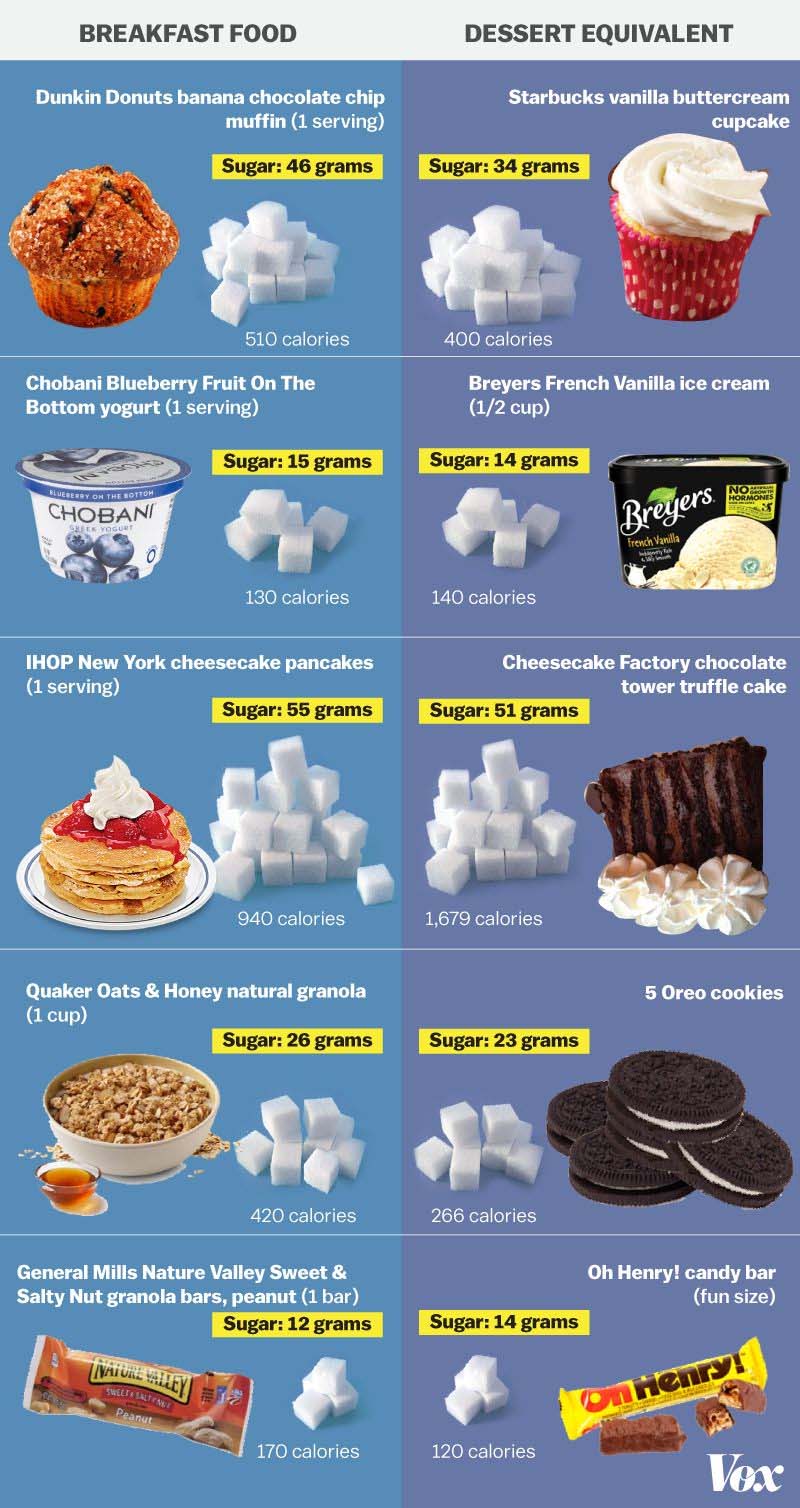It turns out that there’s a pretty big discrepancy between what we believe we’re choosing to eat and what we’re actually putting in our bodies.
The infographic below points out, for example, how when many of us in North America think we’re having breakfast, we’re actually having dessert.
Many muffins, the default grab-and-go breakfast of choice for busy commuters, actually contain more sugar and calories than a cupcake with icing. Flavoured granola cereals have more sugar and calories than eating a whole pile of Oreos. And granola bars – I buy them for my son as a healthy addition to his lunches – apparently I’d be better off just giving him an Oh Henry bar.
Granola bars actually top the list of foods that nutritionists and the general public have different opinions on. The New York Times recently conducted a survey of health experts and the everyday people to compare their perspectives of healthy food. While 71 per cent of people think that granola bars are good for you, only 28 per cent of nutritionists would say the same.

Other top foods that nutrition experts and the general public disagree on include coconut oil – my wife uses it for everything now. Just 37 per cent of nutritionists consider it a healthy option compared with 72 per cent of people surveyed. American cheese, Slim Fast shakes, frozen yoghurt, and orange juices are also all far less healthy than most people seem to think.
On the flip side, the NYT study also brought up some food choices that nutritionists say are actually healthier than most of us give them credit for.
Perhaps unsurprisingly, quinoa, cashews, almonds and avocados are all highly rated as healthy foods. However, shrimp, corn, steak, sushi, popcorn, baked potatoes and wine are all considered to be healthier by nutritionists than the general public. Hey now. If you’ve got yourself a steak, a baked potato and a glass of wine, you’ve got yourself a good time.
And for dessert? Breakfast.
Infographic: It’s time to call the American breakfast what it is: dessert.

Infographic source: We need to call American breakfast what it often is: dessert
New York Times study: Where Americans and Nutritionists Disagree